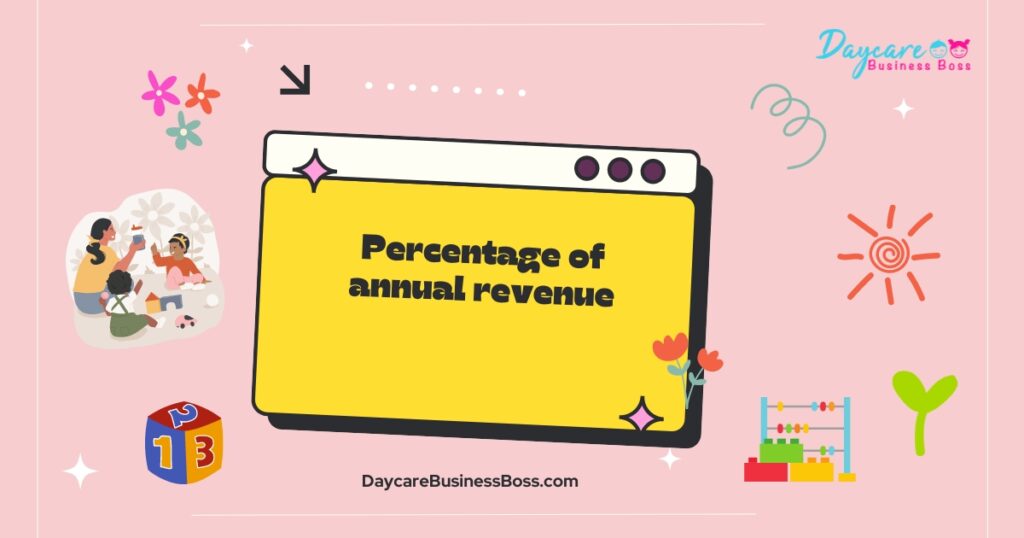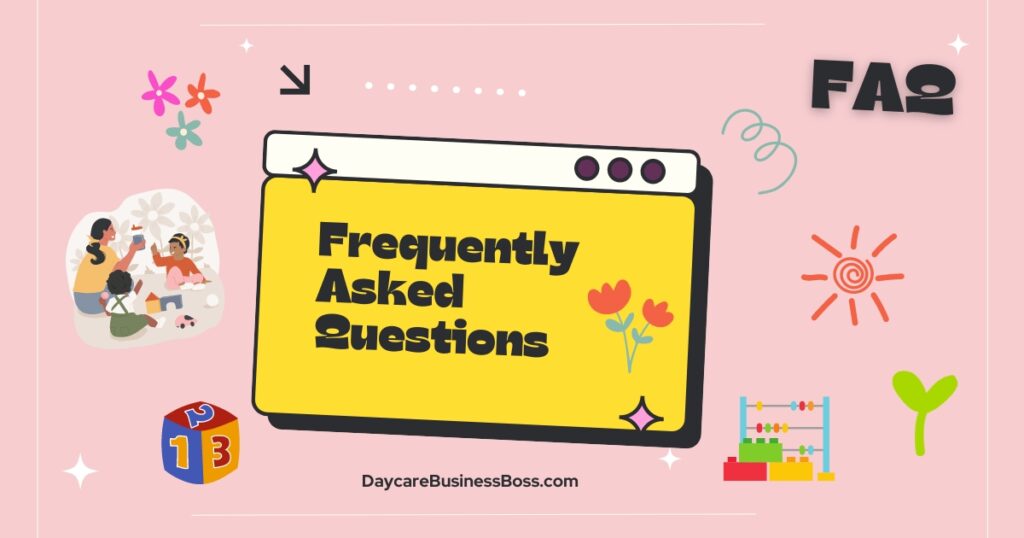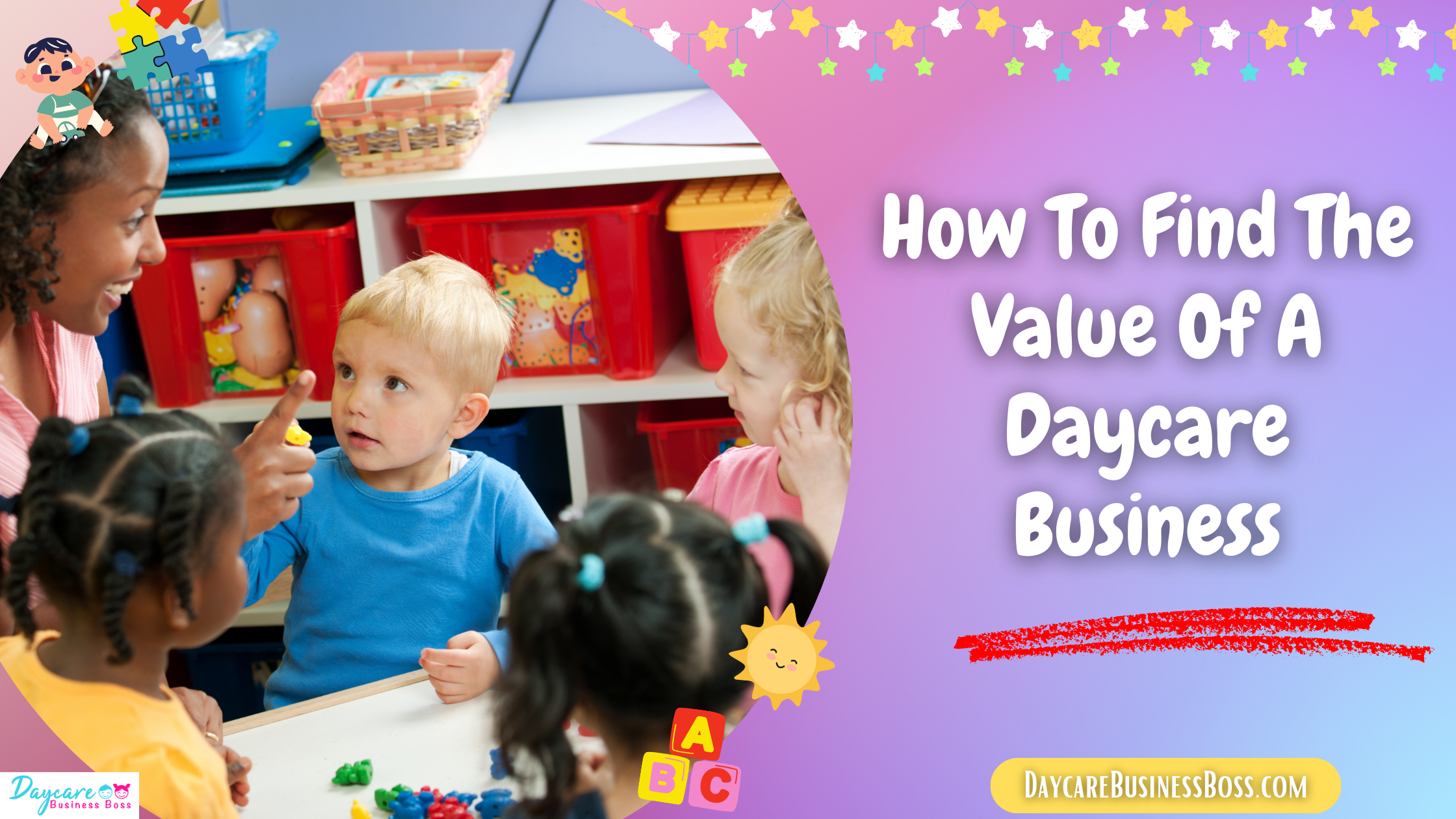Whether you are looking to purchase a daycare, sell your daycare, or are just wanting to gather some information, knowing how to find the value of daycare business can be a useful tool to have in your bag.
To find the value of a daycare business you can use several methods such as: Multiples of sellers discretionary cash flow (SDCF), Percentage of annual revenue, Multiples of earnings before taxes (EBIT), Multiple of earnings before interest, taxes, depreciation and amortization (EBITDA) and Based on license capacity.
In this article, we will discuss the various ways a valuing a daycare business, what factors can change the valuation of the business, and what resources are available for you.
1. Ways to value a daycare business
Trying to get the precise value of any business can be a tricky task. You have to consider factors like past performance, future growth, risk, and current assets, just to name a few. All of these factors can be moving targets which makes it difficult to assess the value of a business accurately.
Luckily, there are a handful of methods that have proved to be relatively accurate when it comes to valuing a daycare business.
Multiples of sellers discretionary cash flow (SDCF)
This method is widely thought of as the most accurate because it takes into account recent sales of similar daycares, as well as the recent performance of the daycare being valued.
This method involves a lot of calculations and steps, so this might be the best method when you are really serious and need a truly accurate valuation. If you are needing a quick estimate, one of the later methods might be more convenient.
Step 1: Calculate sellers discretionary cash flow
Business pretax earnings +
non-operating expenses +
one-time or unusual expenses –
non-recurring income +
deprecation and amortization expense +
Interest expense –
Interest income +
Single owners total compensation
(adjust the compensation of all other business owners to market value) +
Other owners expenses that a buyer would not incur when they take over the center
Step 2: Determine the multiples of comparable sales
Selling price of comparable sales ÷
Sellers discretionary cash flow
This multiple is then applied to your seller’s discretionary cash flow to arrive at a valuation for the center.
Some rules of thumb for this multiplier
- Centers <100 children – 1-2 times annual SDCF
- Centers 100-250 children – 2-3.5 times annual SDCF
- Centers >250 children – 3-4 times annual SDCF
As mentioned earlier, this method can be very complex and you may need to seek out professional assistance. You can use The Daycare Exchange to receive a free valuation consultation to help you with this process.
Percentage of annual revenue

The percentage of annual revenue is a little bit easier method because it values the business based on your annual revenue, which is much easier to find than the seller’s discretionary cash flow. This method can be somewhat inaccurate because revenue doesn’t mean profit.
While it is easy to calculate the annual revenue, the difficult part is coming up with an accurate percentage (or multiplier) to value the business at.
How percentage of annual revenue works:
Annual revenue X Percentage (or multiplier)
Example:
$200,000 X 65% = $130,000 Business valuation
The multiplier is different for every industry, market, and business. For daycare centers, this number can typically range from 35%-65%, but we recommend you consult an expert to help you identify an accurate multiplier.
If you are purchasing the business along with the real estate this can boost the multiplier to 140%-300% of annual revenue.
Multiples of earnings before taxes (EBIT)
Also known as operating income, this method is useful because it gauges a companies earnings and can easily be compared to other daycares in the area.
The formula for EBIT is:
Revenue – operating expenses – overhead/admin expenses = EBIT
A typical multiple applied to value a business is 3-4 times annual EBIT
Example:
$200,000 – $85,000 – $50,000 = $165,000 x 3.0 = $495,000
Multiple of earnings before interest, taxes, depreciation and amortization (EBITDA)
This method is the exact same as EBIT but it removes depreciation and amortization out of its calculation for profitability and operational performance.
The formula for EBITDA is:
EBIT + Depreciation expense + Amortization expense = EBITDA
A typical multiple applied to value a business is 3.5-4.5 times annual EBIT
Based on license capacity
A very straightforward method for valuing a daycare is based on how many children you are licensed to have at your facility.
Typical ranges for this method:
- If you are purchasing just the business – $1,000-$2,500 per child
- 100 children x $1,000 per child = $100,000 business valuation
- If you are purchasing the business and the real estate – $6,000 – $14,000 per child
- 100 children x $6,000 per child = $600,00 business and real estate valuation.
2. Factors that affect daycares valuation
Size
The biggest determining factor when it comes to daycare valuation is the size of your daycare. The most profitable daycare centers are ones that are licensed to have 100+ kids at one time.
While being licensed for a large amount of children looks good, you need to back that up with actually filling up your daycare with children, as well as having a history of satisfied kids and parents.
Having a larger daycare also comes with more risk and potential for change. If you have a large daycare that means you will need more staff and will also have more customers. While typically these are good things, this also could mean an employee makes a mistake and a child gets hurt, or you get a handful of upset parents that then leave you bad reviews.
A large daycare is still, typically, the most profitable, but make sure your daycare has the quality of service to back up its size.
Location
Having a great location, facility, and amenities can boost your daycares valuation. If you have a convenient location in a safe neighborhood with ample space and well-maintained facilities, your business will be much more desirable to a potential buyer.
Staff
Sometimes it is not just about numbers and objective data. Having a quality staff that not only knows how to care for children, but knows how to help them excel will really make your daycare stand out from the competition, which will then give you a higher valuation.
Some appraisers don’t factor this in because the staff doesn’t always stick around, especially after a business is sold, but it is something to be considered. If your staff has been with the daycare center for over 5+ years then the appraiser has an easier time justifying including them in their valuation.
Enrollment
If your daycare center has a long history of high volumes of consistent enrollment, this will help a lot with your valuation. The key is consistent and long term enrollment, most appraisers don’t pay much attention to anything under 3 years because you could’ve dropped prices, increased advertising, or just gotten lucky.
Special programs offered
When your daycare offers something that no other daycare in the area can, you have a serious advantage over the competition. Some common special programs that can help boost your business valuation are:
- Kindergarten preparedness
- Gifted and talented
- Bi-lingual
- Special needs
State subsidies
If your daycare receives a lot of state subsidies or grants this could potentially hurt your overall daycare valuation. Appraisers don’t assume that you will continue to receive state funding, so they discount it from your overall business value.
Rent expense
Commercial real estate isn’t cheap, so if you are spending too much of your profits on your rent, you will be dinged for it. A good rule of thumb is to try and have your rent expense be less than 10% of your gross revenues.’
3. Resources
Trying to value a business can be a difficult task for anyone, so don’t go at it alone. There are plenty of resources online and locally to help you navigate this difficult process.
Online valuation calculators
These online calculators allow you to plug in what information you have and they will spit out a relatively accurate business valuation. Where these calculators fall short is they don’t factor in things like your local market, competition, or economic trends, but they can be a good starting point.
Some popular online valuation calculators:
Online valuation consultations
If you are wanting to go a step further and talk with a real person about getting your business assessed and valued there are plenty of options out there.
There are some free options available, but, like with most things, you get what you pay for. The paid options are relatively fairly priced, ranging between $250-$1,000.
Some of our recommended valuation companies are:
Local financial advisors
While online resources and consultations are convenient and can give you a lot of information, sometimes a local financial advisor who specializes in small businesses can give you insight and advice that you can’t get online.
The reason local financial advisors can be so valuable is because they know they local economy and can do research into the more detailed aspects of the marketplace that some online companies might gloss over.
The best way to find local financial advisors for small businesses is just to do a quick google search, look at their reviews, and then call a handful of advisors until you find one that you are comfortable with and trust.
Related questions

How often should I get a valuation of my daycare business?
Most daycare centers don’t need a valuation unless you are planning to sell the business or have an audit. Some centers will want to get a valuation just to see where they come in at, but for the most part you don’t need to get a valuation.
What are the next steps to sell my daycare?
If you are wanting to take the next step trying to sell your daycare the best idea is to get in touch with a local business broker.
Your local business broker may even do your business valuation for you, but on top of that they will be able to access a network of thousands of potential buyers to make sure your business is sold for what it is worth.
Please note: This blog post is for educational purposes only and does not constitute legal advice. Please consult a legal expert to address your specific needs.
Now you have a value, you will be ready with our startup course and documents.

Meet Shawn Chun: Entrepreneur and Childcare Business Fan.
I’m a happy individual who happens to be an entrepreneur. I have owned several types of businesses in my life from a coffee shop to an import and export business to an online review business plus a few more and now I create online daycare business resources for those interested in starting new ventures. It’s demanding work but I love it. I do it for those passionate about their business and their goals. That’s why when I meet a childcare business owner, I see myself. I know how hard the struggle is to retain clients, find good employees and keep the business growing all while trying to stay competitive.
That’s why I created Daycare Business Boss: I want to help childcare business owners like you build a thriving business that brings you endless joy and supports your ideal lifestyle.

